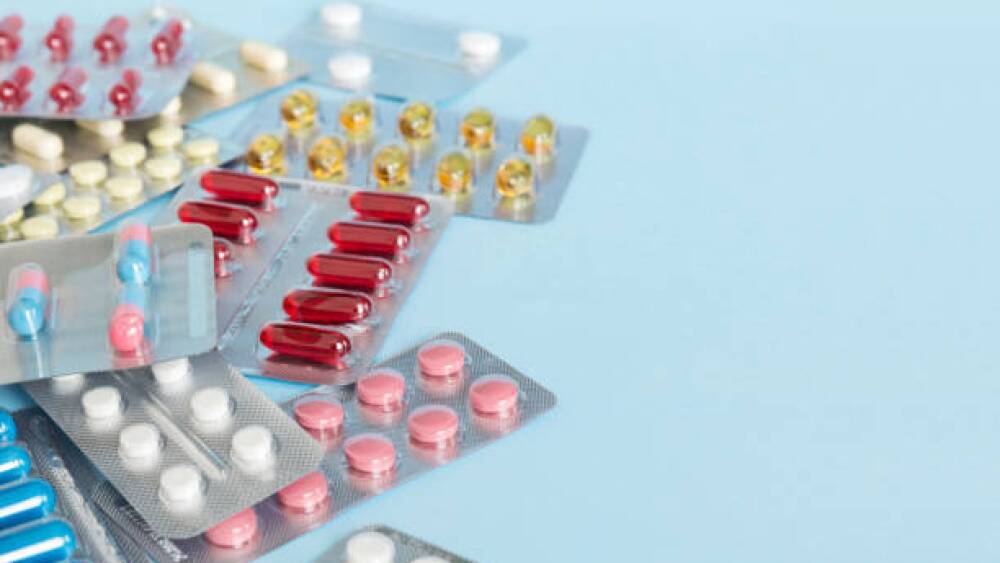MEXICO CITY, Aug. 7 /PRNewswire-FirstCall/ -- GlaxoSmithKline today announced that 96-week data from the HEAT study show that once-daily EPZICOM (abacavir + lamivudine) provides comparable efficacy to once-daily Truvada(R) (tenofovir DF + emtricitabine) as a first-line option for the treatment of HIV. The data were presented today at the 17th International AIDS Conference in Mexico City, Mexico.
HEAT is the first large, prospective, long-term, head-to-head trial to evaluate the safety and efficacy of EPZICOM and Truvada both combined with a boosted protease inhibitor (Kaletra) administered once-daily in adults who had no previous exposure to HIV medicines. The study involved 688 HIV therapy-naive patients: 343 randomized to treatment with EPZICOM and 345 randomized to treatment with Truvada.
Results of the study found that through 96 weeks efficacy endpoints for EPZICOM were comparable to Truvada, regardless of baseline viral load. At 96 weeks 60% of subjects receiving EPZICOM versus 58% of subjects receiving Truvada achieved a viral load <50 c/mL. Patients receiving EPZICOM also experienced similar median CD4+ cell increases to those patients receiving Truvada, 250 vs. 247. Overall, both regimens were generally well-tolerated with comparable safety profiles and few study discontinuations due to adverse events (6% for both treatment arms). Virologic failure occurred in 14% of patients for both groups.
"The result of the HEAT trial further demonstrates that EPZICOM is an effective first-line option for treatment-naive HIV patients with a well-established safety profile," said John Pottage, M.D., Vice President Global Clinical Development at GlaxoSmithKline. "This study provides the first, head-to-head, completed study comparing these two HIV treatments and demonstrates comparable results between the two."
Additionally, a review of two important inflammatory biomarkers, hs-CRP and IL-6, in the HEAT data set showed that levels of both biomarkers decreased from baseline at 48 weeks and 96 weeks. Further, there were no significant differences between EPZICOM and Truvada at any time points. Elevations of these markers have been associated with increased risk of cardiovascular events but the degree of association is still being evaluated.
HEAT Study Explained
HEAT is a head-to-head prospective, randomized, double-blind, placebo-matched, multicenter study evaluating the safety and efficacy of EPZICOM and Truvada. The study assigned 688 patients to receive either EPZICOM QD (n=343) or Truvada QD (n=345) both in combination with QD lopinavir/ritonavir. The primary efficacy endpoint was to determine the proportion of subjects with a viral load of <50 c/mL at 48 weeks and the primary safety endpoint was to evaluate safety and tolerability of both regimens at 96 weeks.
Results demonstrate that EPZICOM was comparable to Truvada in virologic and immunologic efficacy. At 48 weeks, 68% of subjects receiving EPZICOM versus 67% of subjects receiving Truvada achieved a viral load <50c/mL. At 96 weeks 60% of subjects receiving EPZICOM versus 58% of subjects receiving Truvada achieved a viral load <50c/mL. Of those patients who were able to achieve a viral load <50c/mL (ITT, M=F), both EPZICOM and Truvada saw similar success rates regardless of whether baseline viral load was <100,000c/mL (63% vs. 58%) or greater than or equal to 100,000c/mL (56% vs. 58%). Median CD4+ increase was comparable in both arms at week 96 (250 vs. 247).
Adverse events were similar in both arms. Both treatment arms had 6% of patients prematurely withdraw due to adverse events. In addition, 15% of patients had drug-related Grade 3-4 adverse events in both treatment arms. Patients receiving EPZICOM reported higher rates of suspected abacavir hypersensitivity reaction compared with Truvada (4% vs. <1%). Prospective HLA-B*5701 screening was not employed in this study. One percent of patients receiving Truvada developed proximal renal tubule dysfunction (vs. 0% for EPZICOM). Overall, treatment-limiting adverse events were comparable between the two arms.
Important Information about EPZICOM
EPZICOM, in combination with other antiretroviral agents, is indicated for the treatment of HIV-1 infection in adults.
EPZICOM is one of 3 medicines containing abacavir. Before starting EPZICOM, your healthcare professional will review your medical history in order to avoid the use of abacavir if you have experienced an allergic reaction to abacavir in the past.
In one study, more patients had a severe hypersensitivity reaction in the abacavir once-daily group than in the abacavir twice-daily group.
Important Safety Information
EPZICOM contains abacavir, which is also contained in ZIAGEN(R) (abacavir sulfate) and TRIZIVIR(R) (abacavir sulfate, lamivudine, and zidovudine). Patients taking EPZICOM may have a serious allergic reaction (hypersensitivity reaction) that can cause death.
If you get a symptom from 2 or more of the following groups while taking EPZICOM, stop taking EPZICOM and call your doctor right away:
Carefully read the Warning Card that your pharmacist gives you and carry it with you at all times.
If you stop EPZICOM because of an allergic reaction, NEVER take EPZICOM or any other abacavir-containing medicine (ZIAGEN, TRIZIVIR) again. If you take EPZICOM or any other abacavir-containing medicine again after you have had an allergic reaction, WITHIN HOURS you may get life-threatening symptoms that may include very low blood pressure or death.
If you stop EPZICOM for any other reason, even for a few days, and you are not allergic to EPZICOM, talk with your healthcare professional before taking it again. Taking EPZICOM again can cause a serious or life-threatening reaction, even if you never had an allergic reaction before. If your healthcare professional tells you that you can take EPZICOM again, start taking it when you are around medical help or people who can call a doctor if you need one.
A buildup of lactic acid in the blood and an enlarged liver, including fatal cases, have been reported.
Do not take EPZICOM if your liver does not function normally.
Some patients infected with both hepatitis B virus (HBV) and HIV have worsening of hepatitis after stopping lamivudine (a component of EPZICOM). Discuss any change in treatment with your doctor. If you have both HBV and HIV and stop treatment with EPZICOM, you should be closely monitored by your doctor for at least several months.
Worsening of liver disease (sometimes resulting in death) has occurred in patients infected with both HIV and hepatitis C virus who are taking anti-HIV medicines and are also being treated for hepatitis C with interferon with or without ribavirin. If you are taking EPZICOM as well as interferon with or without ribavirin and you experience side effects, be sure to tell your doctor.
When you start taking HIV medicines, your immune system may get stronger and could begin to fight infections that have been hidden in your body, such as pneumonia, herpes virus, or tuberculosis. If you have new symptoms after starting your HIV medicines, be sure to tell your doctor.
Changes in body fat may occur in some patients taking antiretroviral therapy. These changes may include an increased amount of fat in the upper back and neck ("buffalo hump"), breast, and around the trunk. Loss of fat from the legs, arms, and face may also occur. The cause and long-term health effects of these conditions are not known at this time.
The most common side effects seen with the drugs in EPZICOM dosed once-daily were allergic reaction, trouble sleeping, depression, headache, tiredness, dizziness, nausea, diarrhea, rash, fever, stomach pain, abnormal dreams, and anxiety. Most of the side effects do not cause people to stop taking EPZICOM.
For additional important information about EPZICOM please visit http://www.epzicom.com.
About GlaxoSmithKline
GlaxoSmithKline is one of the world's leading research-based pharmaceutical and healthcare companies and an industry leader in HIV research and therapies. The company is engaged in basic research programs designed to investigate new targets to treat HIV. For full information on GSK's HIV medications, please visit http://www.treatHIV.com.
Cautionary statement regarding forward-looking statements
Under the safe harbor provisions of the U.S. Private Securities Litigation Reform Act of 1995, GSK cautions investors that any forward-looking statements or projections made by GSK, including those made in this announcement, are subject to risks and uncertainties that may cause actual results to differ materially from those projected. Factors that may affect GSK' s operations are described under 'Risk Factors' in the 'Business Review' in the company' s Annual Report on Form 20-F for 2007.
CONTACT: US Media, Marc Meachem, +1-919-483-2839, or Mary Anne Rhyne,
+1-919-483-2839, or US Analyst or Investors, Frank Murdolo,
+1-215-751-7002, or Tom Curry +1-215-751-5419, all for GlaxoSmithKline
Web site: http://www.treatHIV.com/
http://www.epzicom.com/




